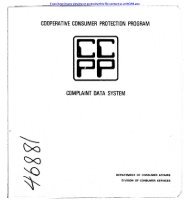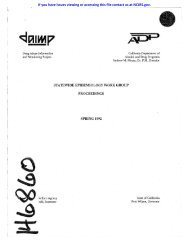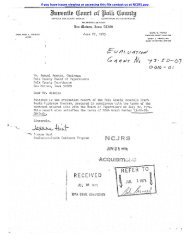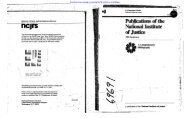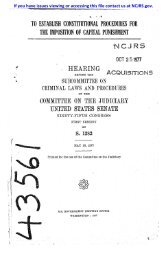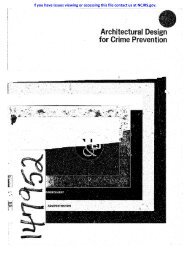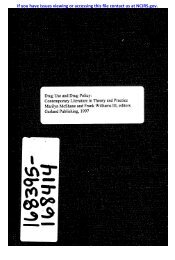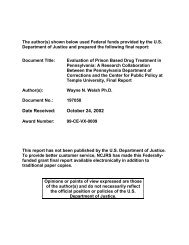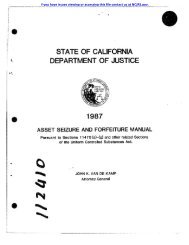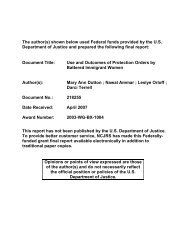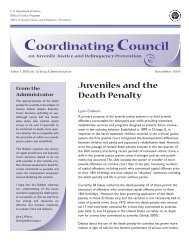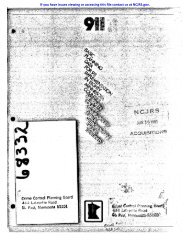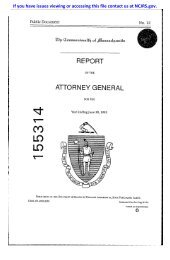Conflict Resolution Education - National Criminal Justice Reference ...
Conflict Resolution Education - National Criminal Justice Reference ...
Conflict Resolution Education - National Criminal Justice Reference ...
Create successful ePaper yourself
Turn your PDF publications into a flip-book with our unique Google optimized e-Paper software.
Chapter 2: Process Curriculum Approach<br />
Process Curriculum: An approach to conflict resolution<br />
education characterized by devoting a specific time to teaching<br />
the foundation abilities, principles, and one or more of<br />
the problem-solving processes of conflict resolution as a<br />
separate course, distinct curriculum, or daily lesson plan.<br />
Teachers who use the process curriculum approach<br />
teach conflict resolution through a time-limited<br />
course, daily lessons over the length of a semester,<br />
or a series of workshops, perhaps conducted during<br />
the homeroom advisory period in middle and high<br />
schools. The daily lesson method is most often part<br />
of elementary school offerings. Although the process<br />
curriculum could be integrated into the existing<br />
curriculum, teachers usually present it separately.<br />
The lessons, which cover the principles and problemsolving<br />
processes of conflict resolution, are unified<br />
in scope and sequence, taking place through structured<br />
activities such as simulations, role-plays,<br />
group discussions, and cooperative learning activities.<br />
This chapter describes three examples of the<br />
process curriculum approach.<br />
The Program for Young<br />
Negotiators<br />
The Program for Young Negotiators (PYN), a<br />
process curriculum program developed by Jared<br />
Curhan, aims to teach individuals how to achieve<br />
their goals without violence. 1 Participating students,<br />
teachers, and administrators are taught a means of<br />
goal achievement and dispute resolution that has at<br />
its heart the practice of principled negotiation. This<br />
type of negotiation challenges the notion that disputes<br />
are resolved only when one side wins at the<br />
other’s expense, and it helps students envision<br />
15<br />
Have you not learned great lessons from<br />
those who braced themselves against you,<br />
and disputed the passage with you?<br />
Walt Whitman<br />
scenarios and generate options in which both sides<br />
are satisfied with the outcome and both are able to<br />
achieve their goals. The foundation abilities of perception<br />
and thinking that are taught in negotiation<br />
courses help students learn that, to satisfy their own<br />
interests, they must empathize with the interests of<br />
others.<br />
PYN consists of four components:<br />
♦ Teacher training and community involvement.<br />
♦ Negotiation curriculums.<br />
♦ Followup opportunities.<br />
♦ Ongoing curriculum development and innovation.<br />
Teacher Training and Community<br />
Involvement<br />
The program first trains schoolteachers and administrators<br />
to negotiate their own issues. During<br />
a training seminar, participants learn negotiation<br />
from professionals such as negotiation professors<br />
and practicing negotiators. After teachers begin<br />
teaching negotiation concepts to their students,<br />
they continue to attend regular curriculum implementation<br />
meetings and are provided with ongoing<br />
technical support.



